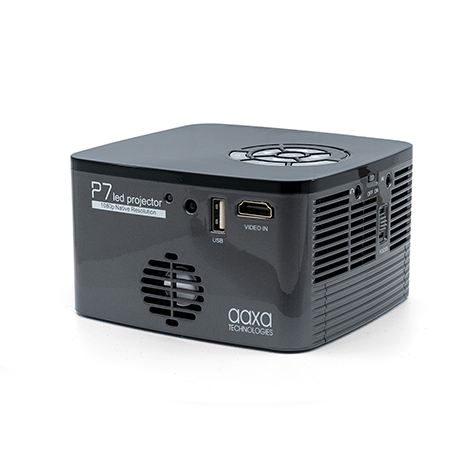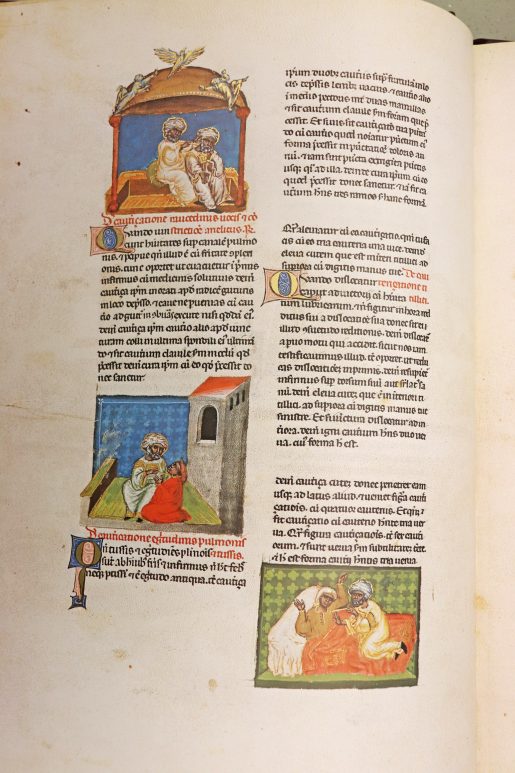Biodata resources are critical to the progress of life science and biomedical research. The Global Biodata Coalition (GBC) recently announced its first set of Global Core Biodata Resources (GCBRs). There are 37 GCBRs that an international peer-review panel considers essential for the global research community and the preservation of biological data. These repositories include deposition databases, which archive and preserve primary research data, and knowledge bases, which add value to these data through expert curation and annotation.
Collection Updates
Updates to the HSLS Online Collection for 2023
For 2023, the Pitt libraries are upgrading our subscription to the SAGE journals package, increasing the number of journals to which our users have access. A few of the new SAGE journals are included among those listed below. HSLS also continually adds new open access journals from numerous publishers. Visit our E-journals A-Z list and click on “Show Select Subject” to view more titles in your area of interest.
Featured Workshop: NIH DMS Catalog vs. Repository for Restricted Datasets
Join us for this online workshop:
Monday, February 13, 2023, 11 a.m.-noon
Love Data Week 2023 features this online workshop to help researchers who are preparing for the NIH’s Policy for Data Management and Sharing (DMS Policy).
HSLS Staff News
The HSLS Staff News section includes recent HSLS presentations, publications, staff changes, staff promotions, degrees earned, and more.
News
Kelsey Cowles, Research and Instruction Librarian, earned Academy of Health Information Professionals (AHIP) credentials through the Medical Library Association (MLA). She also achieved Level II of the MLA Consumer Health Information Specialization.
HSLS welcomes five new members to our team:
Colleen Ashley, Marketing and Web Specialist, coordinates HSLS marketing and promotional efforts, supports website administration, and provides communication within and on behalf of HSLS. She brings experience in writing, editing, and program management in the arts and higher education.
Dominick Caimano, Systems Administrator, manages HSLS web-server hardware, operating systems software, and web-based applications. He worked as an electronics technician for the Department of Cell Biology at Pitt for the past 11 years. During his time at Pitt, he earned both a BS and MS in Information Science, which positions him well as he moves into a career in information technology.
Jeremiah Galvanek, Program Manager, supports the HSLS-UPMC partnership to provide digital library resources and services. He provides project support, manages the HSDL website, facilitates outreach, and coordinates communication related to the UPMC digital library program. He brings expertise in customer support and relations and most recently worked at UPMC Passavant in patient/customer services.
New Feature in PubMed: Proximity Searching
At the end of 2022, the National Library of Medicine (NLM) added proximity search capabilities to PubMed. With proximity search, users can search for two terms appearing within a specified distance from each other in any order in the [Title] or [Title/Abstract] fields. The format for using proximity searching is “search terms”[Field:~n], where n is the maximum number of words that may appear between the search terms.

Create a Big Screen Anywhere with HSLS’s New Circulating Mini Projectors
 HSLS now has two AAXA P7 Mini LED Projectors available for borrowing. Though the P7 mini projector fits in the palm of your hand and weighs just 1.48 pounds, it remains powerful, projecting images at 1080p and up to 120 inches in screen size. These mini projectors can be taken anywhere on campus and are a great option if you’re presenting in a non-traditional space, such as a showcase/presentation hall or a meeting room without display technology. Continue reading
HSLS now has two AAXA P7 Mini LED Projectors available for borrowing. Though the P7 mini projector fits in the palm of your hand and weighs just 1.48 pounds, it remains powerful, projecting images at 1080p and up to 120 inches in screen size. These mini projectors can be taken anywhere on campus and are a great option if you’re presenting in a non-traditional space, such as a showcase/presentation hall or a meeting room without display technology. Continue reading
Year of Emotional Well-Being: What is on Your Wish List?
In line with Pitt’s Year of Emotional Well-Being, HSLS wants to hear from students, faculty, and staff on ways we can expand our resources, services, and spaces to facilitate health and well-being across the health sciences. Please share your wishes and feedback through the Year of Emotional Well-Being with HSLS form. Submissions are anonymous unless you choose to share your contact information.
Featured Workshop on Evaluating Journals: Discovering Where to Publish
“Evaluating Journals: Discovering Where to Publish” is offered as an online session:
Tuesday, January 24, 2023, 1-2 p.m.
Register for Evaluating Journals: Discovering Where to Publish*
This session will cover a wide range of publishing topics to help you find a relevant and reputable journal to publish your work. Learn how to put your article manuscript into a framework, using tools to find journals based on your publishing preferences and funder requirements. Evaluate journals based upon best practices and ethical publishing standards to avoid predatory journals.
Continue reading
Talk With Us About AR/VR in Health Sciences Education
Are you interested in using augmented reality (AR) and/or virtual reality (VR) for health sciences education? HSLS is seeking members of the Pitt health sciences community to join our discussion of AR/VR for use in health sciences education.
If interested, please provide your contact information to us via the AR/VR in Health Sciences Education form.
Virtual Reality at HSLS
The Virtual Reality LearnSpace at Falk Library provides cutting-edge VR technology to the Pitt community. Continue reading
NIH Preprint Pilot Accelerates and Expands Discovery of Research Results
The National Library of Medicine (NLM) announced on December 14, 2022, that the first phase of the NIH Preprint Pilot, a project of NLM, has been successful in accelerating and expanding broad discovery of publicly funded research results relating to the COVID-19 pandemic. The pilot’s first phase added to PubMed Central (PMC) more than 3,300 preprint records reporting on the results of NIH-funded COVID-19 research and made citations discoverable in PubMed.
Preprints are complete and public drafts of scientific articles that have not yet been peer reviewed. Their use in communicating the results of biomedical research surged during the COVID-19 pandemic. The NIH Preprint Pilot builds on the role of PMC as a repository for peer-reviewed articles supported by NIH under the NIH Public Access Policy. Continue reading
Exam Master and Other Exam Prep Tools
Did you know that HSLS licenses Exam Master, an online test preparation tool for the NCLEX-RN®, USMLE®, NBDE, NAPLEX, PANCE/PANRE, and medical specialty board exams? However, many new test prep tools and apps are available, and the library is evaluating what exam study solutions will best support our students. Your input is needed! Please join our focus group to evaluate exam prep tools in relation to your area of interest or study. All faculty, staff, and students in the health sciences are welcome to join by submitting their information in the Exam Prep Tools form.
Treasures from the Rare Book Room: Showing Some Love for Facsimiles
Falk Library has recently acquired facsimiles of two interesting medical manuscripts from the 14th century. Manuscripts, as unique objects, present a collecting challenge to both libraries and their patrons. Unlike books printed in multiple copies, manuscripts can only be in one geographic location—no matter who owns them. It is therefore impossible for other libraries to even dream of having the same manuscript. Since they can be so unreachable, the patrons who want to see and study manuscripts face barriers to access them, as well. Facsimiles—print books that are exact replicas of the originals—give patrons access not only to the intellectual content of the text, but also to the look and feel of the original manuscript. To libraries, facsimiles are a more affordable way of enriching the scope of their collections.

Falk Library’s two newest acquisitions are two surgical texts from the Middle Ages: Codex Vindobonensis and Manuscript Sloane.
Codex Vindobonensis SN 2641, Chirurgia Albucasis, the illuminated manuscript held by Österreichische Nationalbibliothek in Vienna, was created in southern Italy in the second quarter of the 14th century. It was written earlier, in the ninth century, by Abu’l Qasim Halaf ibn Abbas al-Zahrawi (the court physician to the Caliph al-Hakam II), as part of his monumental thirty-volume medical encyclopedia. Only the parts on surgery in Al-Zahrawi’s encyclopedia were translated from Arabic to Latin by Gerard of Cremona in the 12th century. Continue reading
HSLS Staff News
The HSLS Staff News section includes recent HSLS presentations, publications, staff changes, staff promotions, degrees earned, and more.
Publication
Helena VonVille, Research and Instruction Librarian, co-authored the article:
Hoffman BL, Hoffman R, VonVille HM, et al. Characterizing the Influence of Television Health Entertainment Narratives in Lay Populations: A Scoping Review. American Journal of Health Promotion. 2022;0(0). doi:10.1177/08901171221141080
Presentation
Melissa Ratajeski, Assistant Director for Data and Publishing Services, co-presented the training session:
Carder, J. & Ratajeski, M.A. (2022, December). Conducting and Reviewing 3Rs Literature Searches for Animal Use Protocol. On-Demand Session presented at Public Responsibility in Medicine and Research (PRIM&R) Annual Conference.
